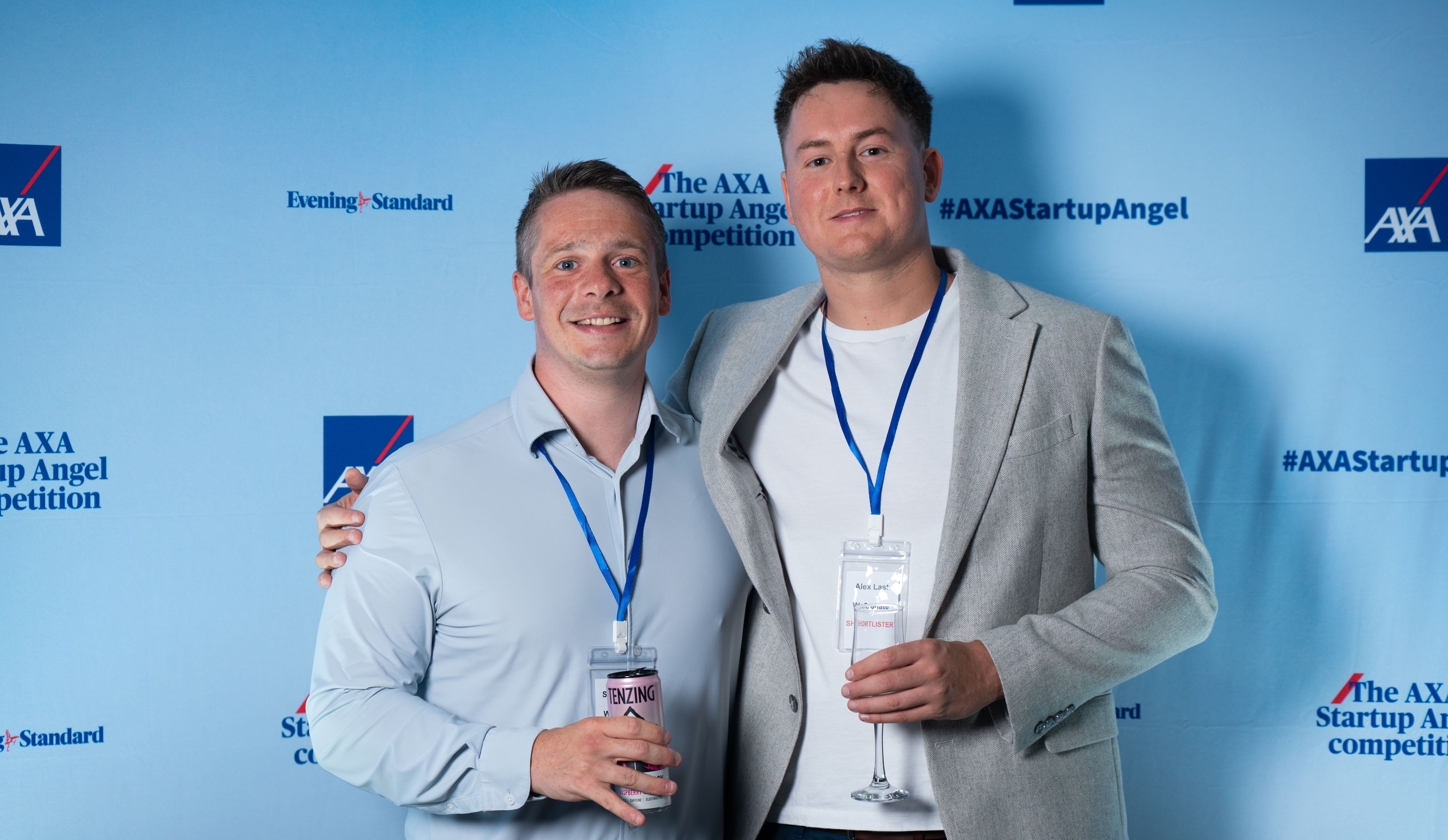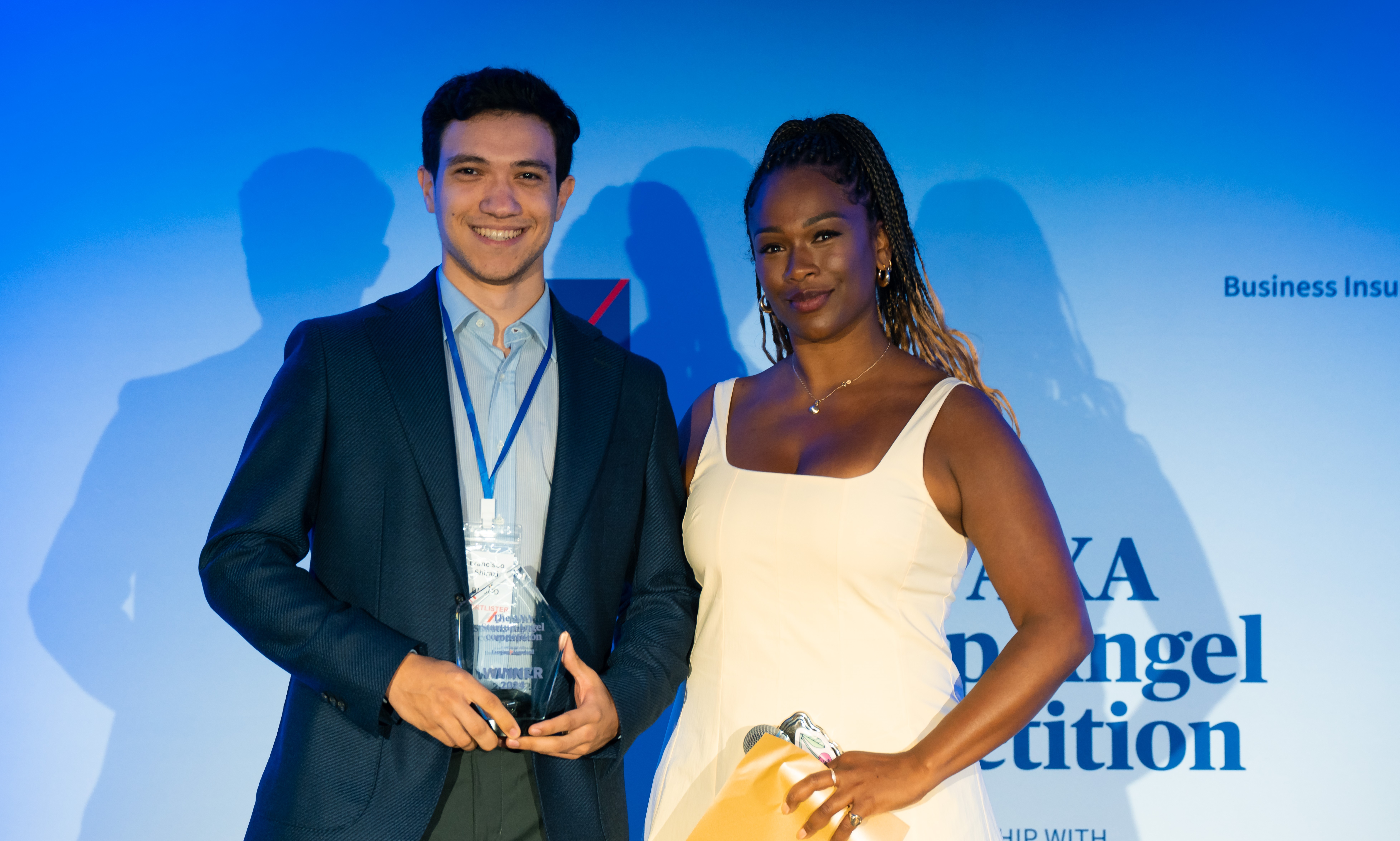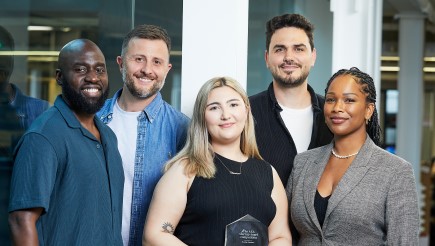In 2021, AXA launched the AXA Startup Angel competition to give worthy businesses the funding and support they need to get the best possible start in their new business ventures.
And alongside £25,000 funding to get their business off the ground and business insurance in their first year from AXA, the competition offered mentoring from the AXA Startup Angels business experts.
If you’re here, you probably know that we’re now running this competition for the third time, looking to support even more great businesses. To help you put together an application with confidence, we’ve asked our 2022 winners for their best advice.
Get inside advice from both Muihood and Team Repair so that you can put your best foot forward when applying.
Why is a competition like SUA so important for businesses like yours?
Megan Hale, CEO of Team Repair: I think with the Startup Angel competition it was so great because it was so easy. We were shocked at how quick the application process was for us, and to then get the funding through and all the help. I think the mentorship we’ve got from Startup Angel in particular has been amazing. The advice we’ve had in those sessions has been amazing. They’ve gone through our business model, nitpicked little bits of it and honestly I think they’ve transformed our business. It's been the best thing to come out of this competition.
Charlotte Yau, CEO of Muihood: Competitions like Startup Angel validate founders’ ideas. It take a lot of courage to start a business and create something that isn’t already in market, something that’s answering a problem. To get backing from programmes like this helps that come to life. Oftentimes, people don’t have that much cash just lying around to start a business. Like me, you juggle lots of jobs to get that money in. So having that money and support to create this idea and bring it to life is life changing, really.
One minute is quite short for a pitch video. How did you decide what information to keep in and what to take out?
Charlotte: When writing your script out, the shorter the sentences the better. When I was rehearsing I started with these paragraphs for information. I kept thinking ‘I can’t miss this out, I can’t miss this out’. But then you can really tell that you’re just reading through a sheet of paper with all these paragraphs on there. So have a skeleton of the story you’re telling, then just put out bullet points of key words. That helps me remember the structure, but don’t worry about writing full paragraphs of a script. It will come out naturally if you know your business better than anyone else and you’re passionate about it.
Patrick McGuckian, Head of Operations for Team Repair: It can be easy to fill a one-minute pitch with as much information as you can, but the judges can only take in so much information – particularly when they are watching hundreds of pitches back to back!
So, when we wrote the script for our pitch, we focused on explaining just two key points: what our business was, and what evidence we had that it should exist. If they can watch your video and understand those pieces of information then they are in the best situation possible to judge your application.
For the written aspect, did you need to do any additional research or thinking about your business to complete that?
Patrick: You need to know what your business does, who it does it for, and why those people need it done. If you are unsure of any of those questions, it’s worth talking to some of your customers to answer them.
If you know the answers to those questions, then it’s worth considering why you want this award. Hundreds of great businesses apply, and AXA will want to give it to the ones that will get the most out of it. Remember that the prize is more than just cash – for us the mentoring was just as, if not more important! So do some research on the mentors, understand how they could help you, and have a plan for how you would spend the money.
Similar to the video, the most important thing is that your written section clearly describes what your business does, why it should exist, and what winning the award will mean for you. Don’t worry if it’s still in its early stages, they won’t expect you to have a 100 page business plan detailing your every day for the next 25 years – we certainly didn’t!
All they are looking for is a good idea that solves a real problem, so make sure that you explain that super clearly. Don’t feel you need to dramatise it with phrasing like “we are going to revolutionise…” or “our ground breaking…”, your ideas will speak for themsleves!
Charlotte: Prior to writing the application, I was working on our pitch deck so had majority of the business information for the competition in the deck. It helped structure our video pitch and written answers so that we were telling a compelling story. I wanted to keep our answers concise and thorough so anything that didn't answer "so what?" we removed from the answer.
What do you think made your entries successful?
Patrick: Our entry described our product (a subscription teaching children science and technology by sending them electronic gadgets with carefully planned faults to fix), and the problem it was solving (parents struggling to find engaging hands-on activities to nurture their children’s interests and frustration with unsustainable toys piling up at home) extremely clearly.
We also demonstrated that we were committed to building it, highlighting key traction metrics like our waitlist of 220 parents built with Facebook advertising, and the 100 children who tested our prototypes.
Finally, we made it clear what winning the award would mean for us (fund the development our programme, build up stock, develop our app – allowing us to launch by summer 2023) highlighting what we could learn from each of the mentors.
Charlotte: Having really granular data on what drives the business growth helps back what we are asking for. We highlighted our spend breakdown on how we would use the grant money and what return that would bring to the business which is what the judges liked to see.
How long did it take you to prepare the application?
Charlotte: I’d never done a one-minute pitch before, but I thought it’d be a good opportunity to practice my pitching skills. It took two days in total from scripting to editing the video to put an application together.
Patrick: It probably took us around a day to complete our application – including writing, filming, and editing pitch, researching the programme and mentors, and completing the written section.
It’s worth remembering that they are judging your business, not your application. If your application clearly explains everything it needs to, it’s good to go!
How can you make the most of the mentoring sessions with the AXA Angels?
Charlotte: I tailored my questions to each individual mentor. I wanted to really hone in on their strengths and find out where they could add more value.
Each mentor is very different. The most valuable thing I got out of it was how their experience and their stories gave me perspective of different routes of how to build a business. Different approaches to navigating different situations. Whether it was to do with fundraising and different options other than angel investing or venture capital, which are the ones that get the most press and seem the most glamorous. There’s loads of different avenues for businesses to raise money which don’t involve losing equity, so it was great to understand that a bit better.
Anais Engelmann, Chief Creative Officer of Team Repair: The mentoring has been so valuable, so looking at the Angels in advance and thinking about their skillsets, their businesses and how they could help you would be a great way to make sure your business stands out.
Any other advice as a previous winner?
Charlotte: For sure apply and do it! Really work on your brand messaging and storytelling. Those two things are so important in any pitch. It doesn’t have to be perfect if you’re still at the ideation stage or you’re very much starting out, but if you nail your story and the passion behind your business it will translate through to the judges. Showing that you’ve got a really solid idea and talking them through your story will make you stand out.
Megan: Think about the positive social or sustainability impacts of your business. I think both of the 2022 winners could both point to the good they’re doing behind just selling a product or a service. The competition is a great opportunity for you to think about the social good your business can do and to shout about that within your application.
Make sure you really think about more than just the money too. In our application we had one section about what the money would help us do, we had another section on what the mentorship would help us do, and another about what the exposure from the Evening Standard would help us do as well.






